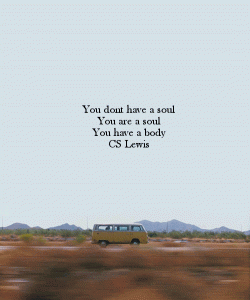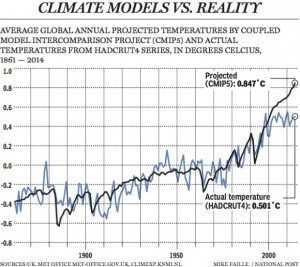There is an immense cosmic Opinion Bowl, the Cosmodome. It seats a hundred million people, most of whom, at a given time, are dead spirits. They shout as lustily as the small minority of the audience who at any given time are living.The game lasts eternally. There are time-outs for civilizational collapses, plagues, and really serious wars. If the Opinion Bowl has been at various times destroyed, it has always been rebuilt. In the Opinion Bowl one fight has gone on since the dawn of civilization. It is a struggle for dominance in explanations, between the Skyhookers and the Up-From-Belows. There are other matches too, besides the Skyhookers versus Up-from- Belows, and sub-fights within the factions. The immense, indeed near infinite audience, forms into factions and tribes at the speed of thought.
Prominent captains of the Skyhookers have included Plato, Aquinas, Luther, Calvin, Aristotle, Descartes, Pascal and other luminaries of the Western canon. Monotheists tend to be Skyhookers, but not exclusively, nor even to the extent of denying the arguments of the Up-from-belows. Indeed the question of theism – is there an organizing God? – tends to confuse the debate somewhat, because the debate is really about whether matter is sufficiently self-organizing for conscious observers (us) to emerge from the primordial stews, or was there some help – guidance if you will – from the future, from where we will end up, allowing for an overall purpose and direction in history. Such a view – the importance of observation – is consistent with the Copenhagen Interpretation of Quantum Physics.
Unfortunately the two thousand year-long dominance of Plato and Aristotle, two of the greatest skyhookers who ever thought, who were blind to the virtues of evolution, of trade, of self-organization, of growth and development, biased the intellectual life of the West to static thought, to anti-mercantile attitudes, and to the idea of immutable characters and essences. Aquinas’ adoption of Aristotle in the 12th century, and his acceptance by the Church as official orthodoxy, kept Skyhooker attitudes firmly entrenched in the core of official Christianity. It took a Reformation and a scientific revolution to loosen the links between Christianity and Aristotle. It now asserts that faith in Skyhooks is just that, faith, and if you do not believe in the Great Skyhook, you have not understood the Gospels properly.
The Up-from-Belows started out small but in the last few centuries have grown to dominate the game. First it was Epicurus, then Lucretius who set Epicurus’ thought to one long poem, and the near miraculous finding of a lost text of Lucretius in a German monastery at the time of the Renaissance. Lucretius is the first exposition of a materialist world of self-organizing atoms without the need for gods to explain anything. No wonder the Platonists were not anxious to preserve it. Later came Adam Smith, David Hume, Darwin, Friedrich Hayek, economists, and other proponents of the self-organizing capacities of nature and man. Atheists are, in general, up-from-belows, but many proponents of the Skyhook tradition also acknowledge the reality and importance of the self-organizing features of nature, which includes human beings.
Now Skyhook is a term of derision, like Puritan, Tory, Quaker, Whig, Protestant, Grit. The Skyhookers think that the entire universe has been brought into existence by a Mind, and that it is pervaded or organized by something like thought, and that behind the appearances is a Big Thinker, who has brought reality into being. Not just quarks and leptons, the strong force and the weak force, electromagnetism and gravity, but mind itself. They point out that mind is a feature of this universe that has to be explained.
Other skyhookers think that minds in the future are, by the force of their observations in the future, bringing into existence a state of affairs conducive to life, consciousness and intelligence. This view was the basis of the recent science fiction movie, Interstellar.
The Up-from-belows, when they wade into cosmology, get into trouble with mind. Their views are frequently materialist, and their ideas of matter are seen, by Skyhookers, as constricting limitations of the largest kinds on whatever could be real. Daniel Dennett is a prominent example. Extreme materialists end up denying the existence of mind, or denying the particular appearance of qualities (known to the trade as qualia). If everything is self-organizing matter, and we know that matter is dead – so to speak – then mind is found in brains, and dies with brains. Brain generates mind, and not the other way around. This conclusion is an undiscussable reality for the extreme materialist.
The Sky-hookers say that Mind is a feature of this universe that needs explanation, and they rely on the Benign Designer God as their Super Turtle, the explanation that stops the need for an infinite regress of explanations. The Universe rests on the back of an Elephant, and the Elephant stands on the back of a Turtle, and either it’s turtles all the way down (infinite regress), or a Super Turtle ends the regression. That is what I mean by a Super Turtle.
Many Up-from-belows say that the question is absurd: we are here by fluke. Others say that we live in a multiverse, and in this world of infinite possibilities, we just happen to live in the world that generated minds to observe it. So they offer the same explanation as the flukers, only disguise it under the multiplication of universes. Many up-from-belows disparage the idea of an Intellgient Designer, but hold that physical laws are Platonic abstractions that exists outside of time and space. Designer God, fluke, multiverse, the immutable Laws of Nature which exists outside human influence: each is a Super Turtle. The whole issue is explored entertainingly and well by Paul Davies in the Goldilocks Enigma: Why is the Universe Just Right for Life?
Just because the Up-from-belows wander into conceptual and metaphysical difficulties when they ponder the origin of everything, and the nature of mind, does not mean that they are wrong about how human institutions have evolved.
Thinkers as different as Darwin and Hayek are in the Up-from-Below camp. It is frequently amazing to me that people who celebrate the process of biological discovery called evolution tend to be squeamish about the process of price and product discovery called capitalism.
The basic idea is that humans create order without thinking about it, and that order causes changes in us, as we adapt to it and develop social customs that allow for greater wealth creation and more complex societies. Such an idea infuses thinkers like Adam Smith and Friedrich Hayek. In fact Charles Darwin is known to have thoroughly read Adam Smith’s Wealth of Nations when he was in university.
This has to be the most long-winded introduction to a wonderful book by Matt Ridley, the Evolution of Everything. I strongly recommend it.
Ridley engages in a thorough exploration that evolution applies to everything: religions, moralities, biology, technology, languages, laws: a complete bottom-up self-organizing explanation of everything.I do not find it necessary to agree with every argument of a writer, especially when they are engaged in a serious romp through vast reaches of important subject matters. For a splendid stimulation of your mind, even as you may argue with it as you read, Ridley’s book makes a great Christmas gift.
He is not the kind of writer who obliges you to agree with him on pain of being cast into outer darkness.
PS:
If you google this book, ignore especially the Guardian’s mean spirited assassination attempt. Kirkus Reviews discusses the actual ideas of Ridley fairly.









